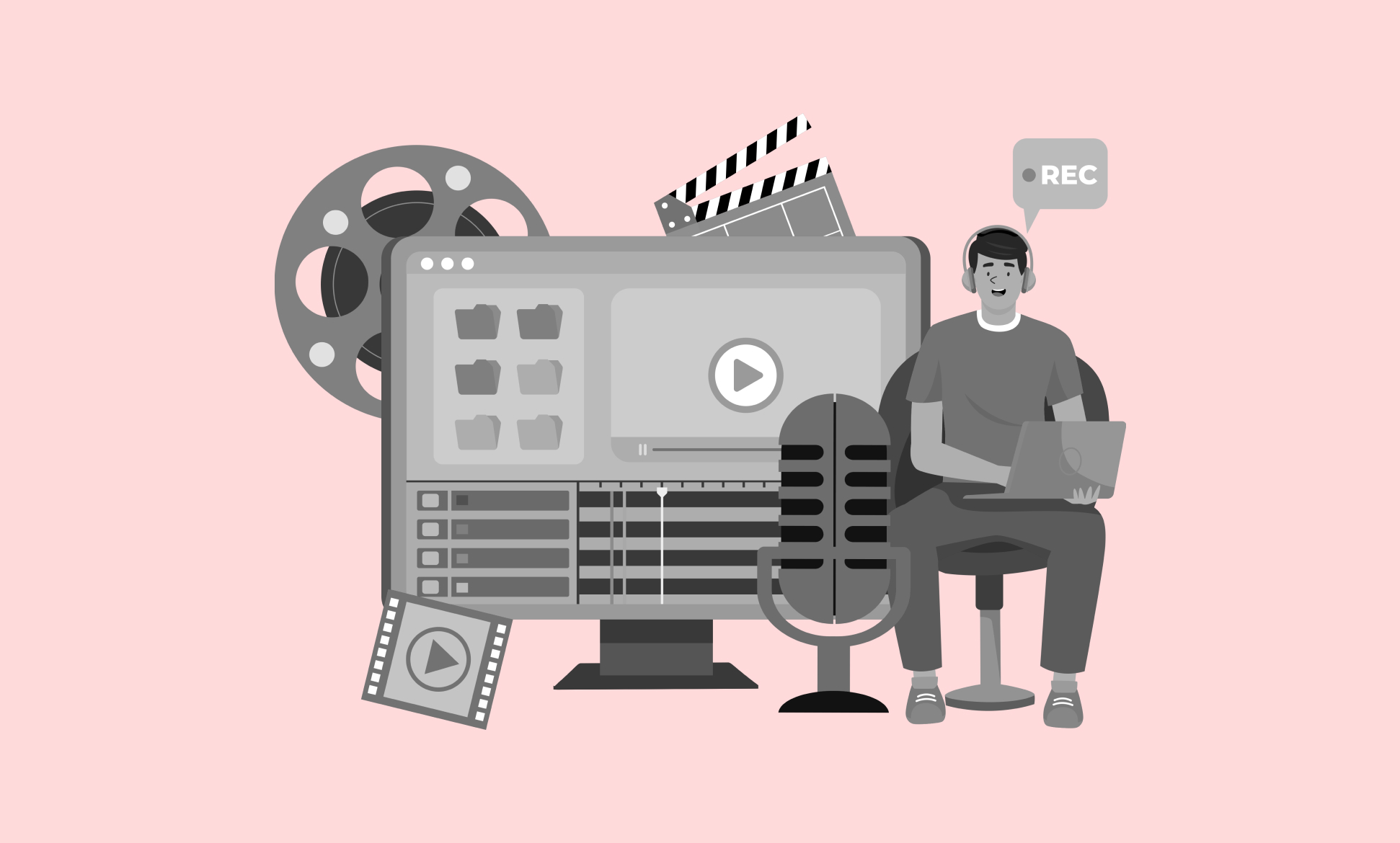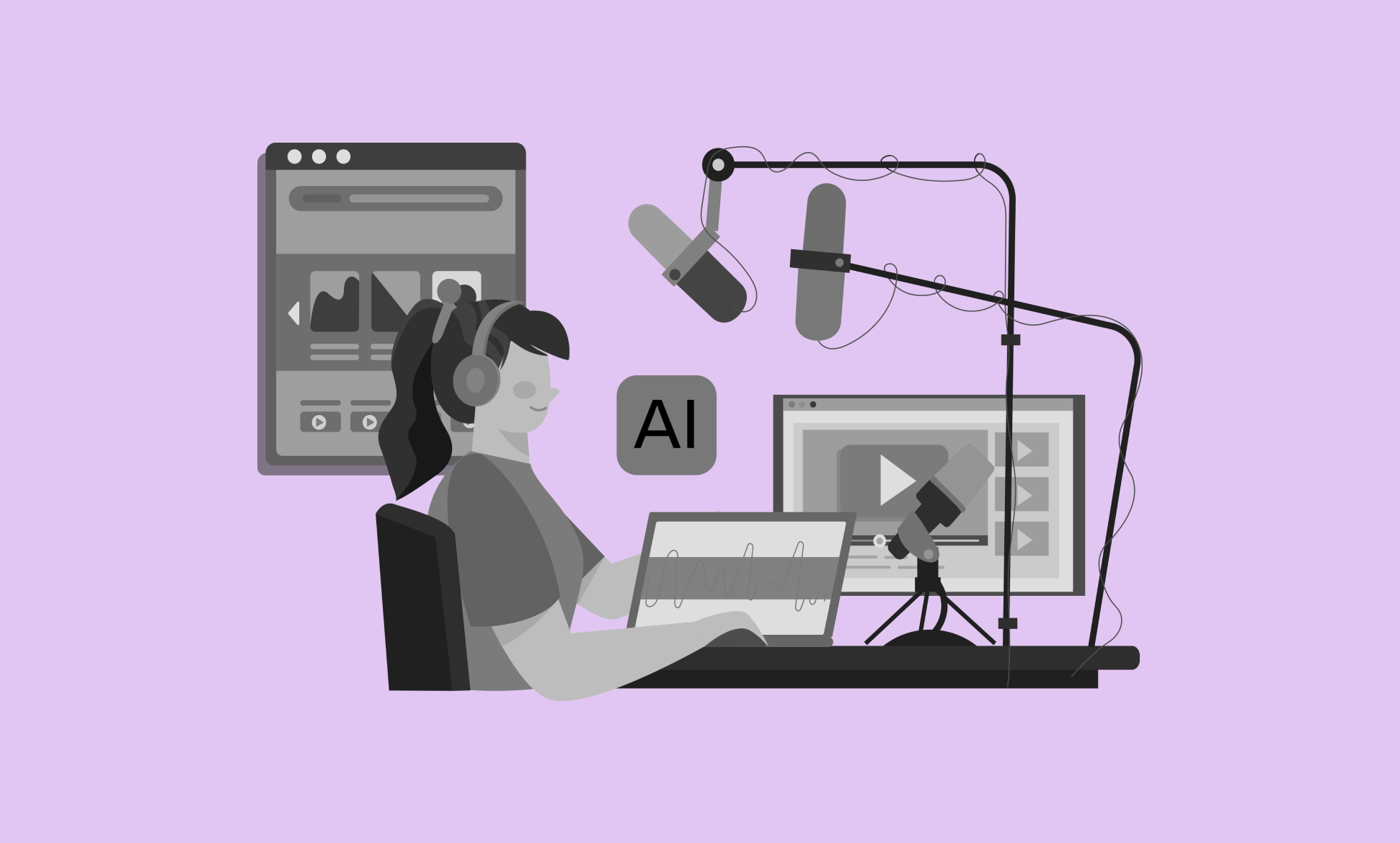Simon Sinek famously wrote Start with Why back in 2009 and since then, the author has been changing the way people approach their business.
If you haven’t read this book, based on the title you can get the idea that Sinek is teaching readers the value of starting with “why” and explaining it to anyone that may come across your brand.
Personally, I’m a lover of this book. Its framework is unique, especially considering it was written in 2009, and it’s something that all marketers should continue to remind themselves as we get caught up in the what and how of what we’re doing.
And since I love this book and mindset so much, I wanted to share why podcasters should also be asking themselves the question of “why”.
What makes some podcasts great?
The main question that Sinek is trying to answer in his book is this: “Why are some people and organizations more influential, innovative, and profitable than others?”
If we look at podcasts, we can ask ourselves why some podcasts are more influential, innovative, and even profitable than others.
And yes, we take into account that some podcasts have been created by celebrities, and with that, an automatic audience usually follows. But we’re talking about the indie or pro podcasters that have grown in popularity strictly through their content, marketing tactics and the voices behind the audio.
Podcasts like Call Your Girlfriend or Inappropriate Questions. What makes these shows so great that listeners keep tuning in every episode?
Before we get into this article, we also want to make a note of audio quality. All of these shows have great sound quality and production behind them. This helps to increase your likeability among listeners but there are hundreds of thousands of podcasts out there with great quality. So in this article, we’ll be focusing on the messaging behind these shows.
The Golden Circle Framework
Sinek’s book, Start with Why lays out the idea of “The Golden Circle”.

The Golden Circle has the “why” at its center, followed by “how” in the second largest ring and “what” in the largest ring.
The idea behind this is to discuss the challenge that so many brands or in our case, podcasters, struggle to uncover why they’re producing the content that they’re creating.
- Why are these conversations or stories being shared?
- Why should we care as a listener?
- Why are you the one to be sharing these stories?
And once you’ve identified your why, you then move into the how and the what of what we’re doing.
When you start with why, you’re giving yourself the ability to lead, inspire, and build a dedicated listener base for your podcast.
As a listener, I don’t want to know what you’re doing or how you’re doing it, I want you to show me why you’re creating this content and why I need to be listening.
Why should I use this framework for my podcast?
Podcasts are such an intimate medium, you’re in your listener's ear for sometimes upwards of 90 minutes. To be frank, this is a crazy amount of time to be able to hold an audience’s attention.
Not a lot of other marketing channels can achieve these results. For example, when compared to video, podcasts have proven to engage audiences for longer time frames. 93% of people who listen to a podcast end up listening to the entire episode; however, a 30-minute video generally only has a 12% completion rate.
On top of that, videos under two minutes in length get the most engagement; whereas, 43-minute podcasts are the sweet spot for listeners.
So basically, we’re saying that as a podcaster you hold a very unique and powerful opportunity with your audience. How you use this power will be one of the deciding factors around whether or not your show will become a leader in audio.
The popular podcasts out there typically didn’t start with mass budgets or resources. Yes, they acquired them over time as they gained traction and yes, it helps the overall growth of your show. However, those large marketing budgets or resources aren’t the reason why listeners continue to tune in and become dedicated fans.
So what is?
It’s the message. It’s the hosts. It’s the relatability factor. It’s the why of why they’re creating this content.
These podcasts all do something similar by hitting an emotional response in their audience. Listeners tune in and can relate to the content, have questions answered that they’ve been too scared or embarrassed to ask, or just feel like they have a personal connection/relationship with the host.
Examples of successful podcasts that have asked themselves “Why”

Call Your Girlfriend
From the inception of "Call Your Girlfriend," listeners were invited into the intimate conversations and lively debates between Ann and Aminatou. These two best friends had an uncanny ability to bridge the physical gap that separated them by sharing their thoughts on everything from pop culture phenomena to the latest political developments. It was a weekly rendezvous filled with laughter, insight, and the comforting feeling of eavesdropping on a heartwarming friendship.
Between 2014 and 2022, "Call Your Girlfriend" captivated audiences, attracting hundreds of thousands of listeners per episode. The show was not just about Ann and Aminatou; it was about showcasing women who are forces of nature, creators of change, and influencers in their own right.
The Why: They believe that women sharing their experiences can be a potentially life-changing act.
The How: They have conversations among themselves to share these experiences and beliefs.
The What: A podcast.

Call Her Daddy
"Call Her Daddy" is not your typical podcast. It's a candid and unapologetic exploration of relationships, dating, and sex, all infused with a healthy dose of humor. The host, Alex Cooper, along with her special guests, fearlessly share their personal stories, creating an intimate and relatable atmosphere for listeners.
Since its inception in 2018, "Call Her Daddy" has become a cultural phenomenon and a voice for a generation. It's not surprising that it holds the prestigious title of being the most-listened podcast by women on Spotify. Host Alex Cooper fearlessly tackles the issues and questions that others shy away from, and in doing so, she creates moments of pure joy and heartfelt emotions for her listeners.
The Why: To share her (Alex’s) experiences with relationships, sex, social scenes, and embarrassing moments that listeners can relate to or feel more comfortable in their own experiences.
The How: Alex has conversations with listeners on her own or with guests to talk about these experiences.
The What: A podcast.

Inappropriate Questions
In their riveting biweekly podcast, aptly titled "Inappropriate Questions," hosts Elena Hudgins Lyle and Harvinder Wadhwa invite listeners on a thought-provoking journey into the realm of curiosity. This podcast explores the often awkward and uncomfortable questions that society tends to shy away from. With a refreshing candor and a deep commitment to understanding, Elena and Harvinder create a safe and welcoming space for guests to unpack these tricky questions.
"Inappropriate Questions" offers a fascinating glimpse into the intricacies of human relationships and societal expectations – from the complexities of jealousy in polyamorous relationships to the misconceptions surrounding Indigenous identity.
What sets this podcast apart is its unwavering dedication to storytelling. Each episode unfolds as an engaging narrative, allowing guests to share their personal experiences and insights. Through candid conversations and honest reflections, Elena and Harvinder peel back the layers of these seemingly inappropriate questions, revealing the nuanced perspectives and emotions that often lie beneath the surface.
The Why: To make space for curiosity by unpacking tricky and sometimes uncomfortable questions to give listeners a starting point for tackling this subject matter.
The How: Hosts Lena and Harvinder sit down with guests to discuss the tricky questions they get asked and better ways to approach these topics.
The What: A podcast.
--
Alright, now let’s unpack this.
Looking at the above breakdowns, what do you notice? We’ll give you a minute.
Alright, we’ll tell you. If it’s not already obvious, you can see that what makes the podcast unique, relatable, and authentic is the why. The how and what are pretty similar across the three podcasts – they have conversations with either themselves or guests and it’s done through a podcast.
But the why is the reason listeners tune in and keep coming back. The why is what connects to audiences on a deeper scale. And the why is how these podcasts have become leaders in audio and have made a name for themselves. It’s what makes listeners choose them over other podcasts that might be similar.
Lead with your why, the how, and what will follow
To wrap this up, as Simon Sinek writes, start with your why. This is your unique differentiator and connector to listeners because the how and what just don’t cut it.
Creating audio for the sake of creating audio or because you think it’s the popular thing to do just isn’t going to work (again, it might work if you’re a celebrity, but we’re assuming many of you are not… sorry). As a creator, you have to not only identify what your why is but also lead with it.
If you don’t, you’re falling into the sea of podcasts that also have conversations with themselves or guests on an array of topics. Not surprisingly, this won’t make you stand out.
If you want help finding your why, reach out to our team!


.webp)








